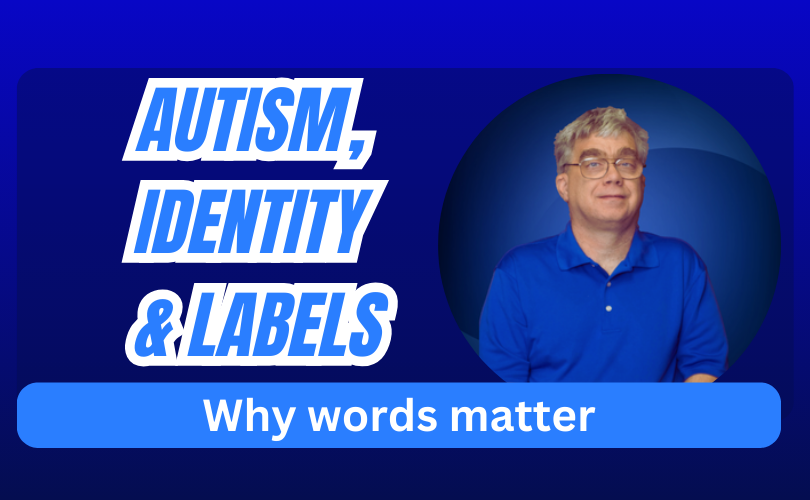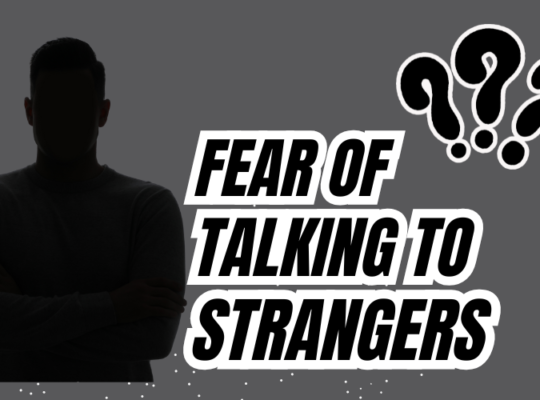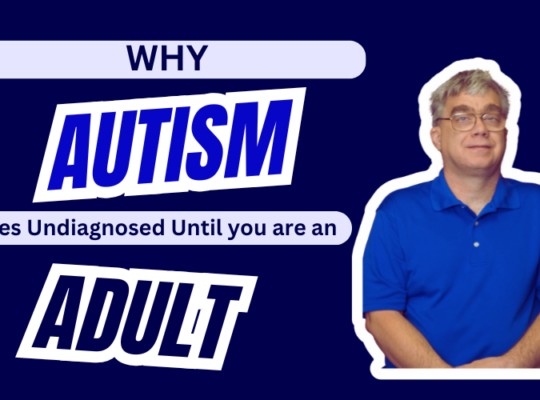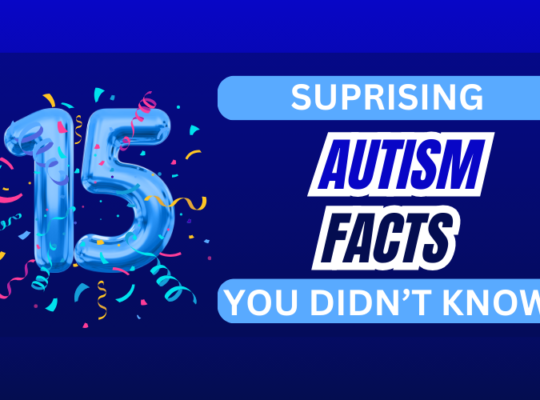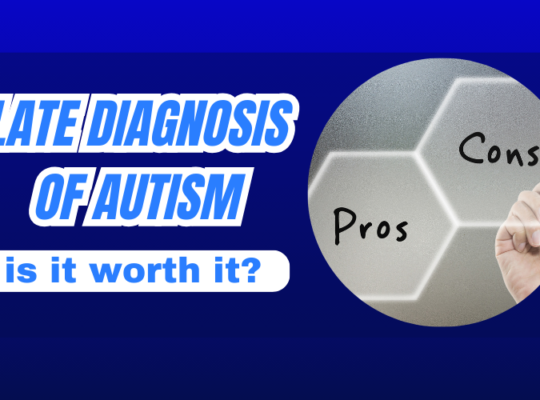Lets start by acknowledging that there are different opinions within the Autism community on this topic. And that’s okay! This conversation isn’t about telling anyone what they ‘should’ say—it’s about understanding the impact of language and making informed choices.
Identity-First vs. Person-First Language
Let’s start with definitions. Person-first language, or PFL, means putting the person before the diagnosis—as in ‘person with Autism.’ This approach was encouraged by medical and educational institutions as a way to emphasize that a person isn’t defined by a diagnosis. On the other hand, identity-first language, or IFL, embraces Autism as an inherent part of who someone is—as in ‘Autistic person.’
Now, while person-first language was well-intended, many Autistic adults prefer identity-first language. Why? Because Autism isn’t something separate from us—it’s part of our identity, like being tall or left-handed. For many, saying ‘Autistic person’ is a way to take ownership of who we are, rather than treating Autism as an add-on or a burden.
At the end of the day, language is personal. Every Autistic person should have the right to describe themselves in the way that feels right to them, and that choice should be respected.
Reclaiming the Word ‘Autistic’
For a long time, the word ‘Autistic’ was used clinically, and sometimes even negatively. People saw it as if something wrong or broken. But the Autism community has worked hard to reclaim it as a neutral or even positive descriptor. Because here’s the truth—‘Autistic’ is not a bad word!”
Saying ‘I’m Autistic’ isn’t something to be ashamed of. It’s an acknowledgment of an important part of who we are. When we reclaim ‘Autistic’ and use it with confidence, we challenge outdated stereotypes and create a more accepting world.
The Power of Owning Your Narrative
Language impacts how we see ourselves. Growing up, I struggled with feeling different, and I didn’t always have the words to describe why.
But when I first started self-identifying as Autistic with pride, something shifted. I wasn’t ‘broken’ or ‘too sensitive’—I was autistic. And that was okay.
When Autistic people define themselves, rather than letting others do it for them, it’s a powerful act of self-acceptance. Whether you prefer identity-first or person-first language, the key is that YOU get to decide. Take the time to explore what resonates with you, and don’t be afraid to own your story.
Common Myths & Misconceptions
Myth #1: Identity-first means defining yourself only by autism.
Some people worry that using identity-first language means Autism is the only thing that defines us. Not true! Autism is a part of our identity, but just like being a musician, a parent, or a cat lover—it’s one of many parts.
Myth #2: Person-first is more respectful
Respect isn’t about which language you use—it’s about honoring individual preference. If someone prefers ‘person with Autism,’ respect that. If they prefer ‘Autistic person,’ respect that too. Simple, right?
Myth #3: Labels are limiting
Labels can be limiting if they’re imposed on us, but they can also be freeing when they help us understand ourselves. Many of us felt lost before discovering we were Autistic—finally having a word for our experiences gave us clarity and confidence.
Words matter. They shape how we see ourselves and how the world sees us. Whether you use identity-first or person-first language, the important thing is that you feel empowered by your choice.
Regardless of if you prefer identity first or person first language, you are not wrong and should be respected for your choice.

